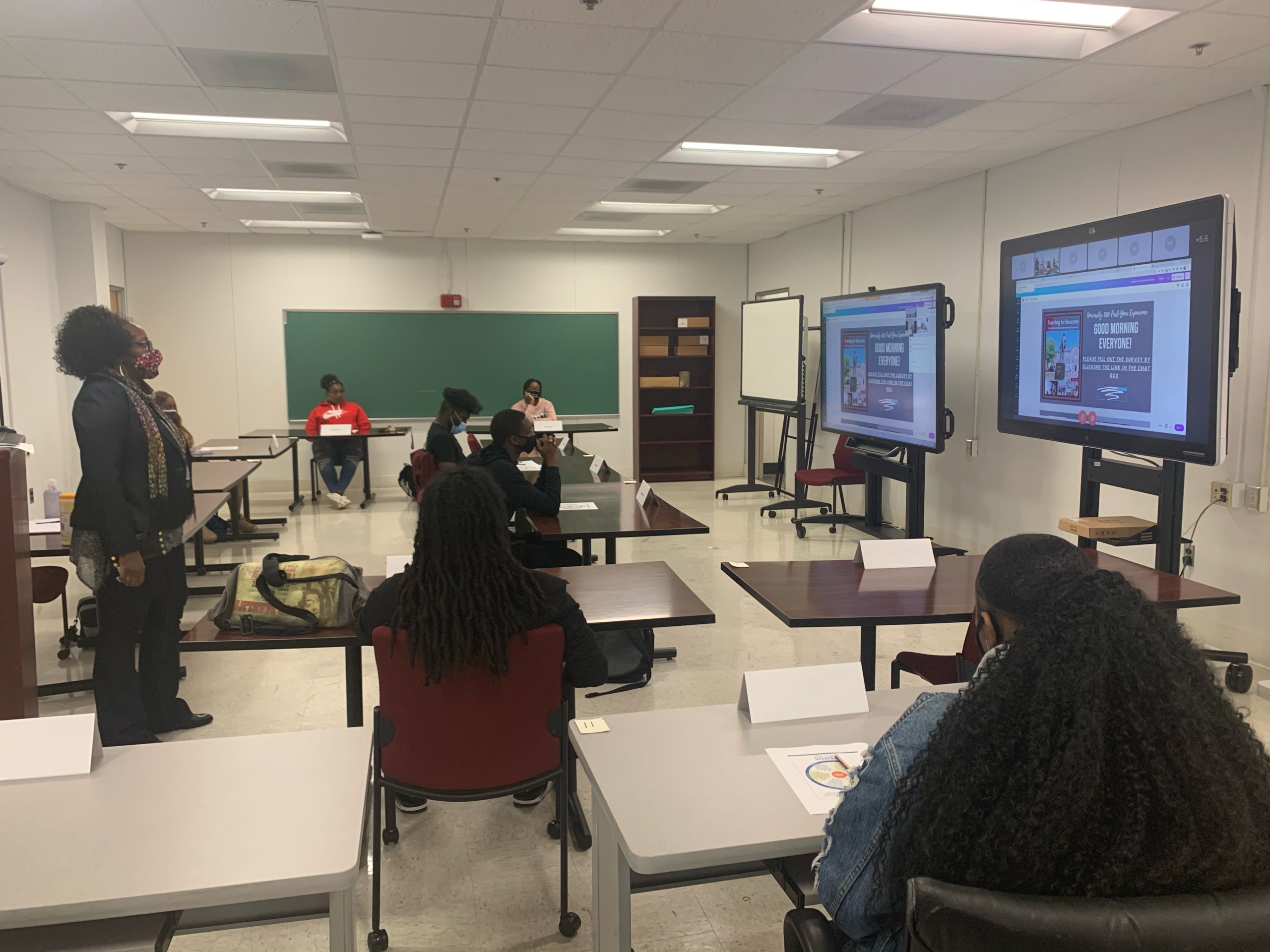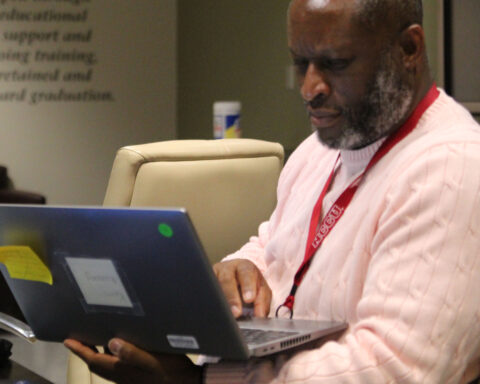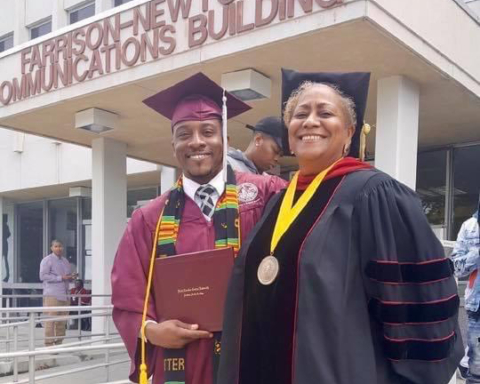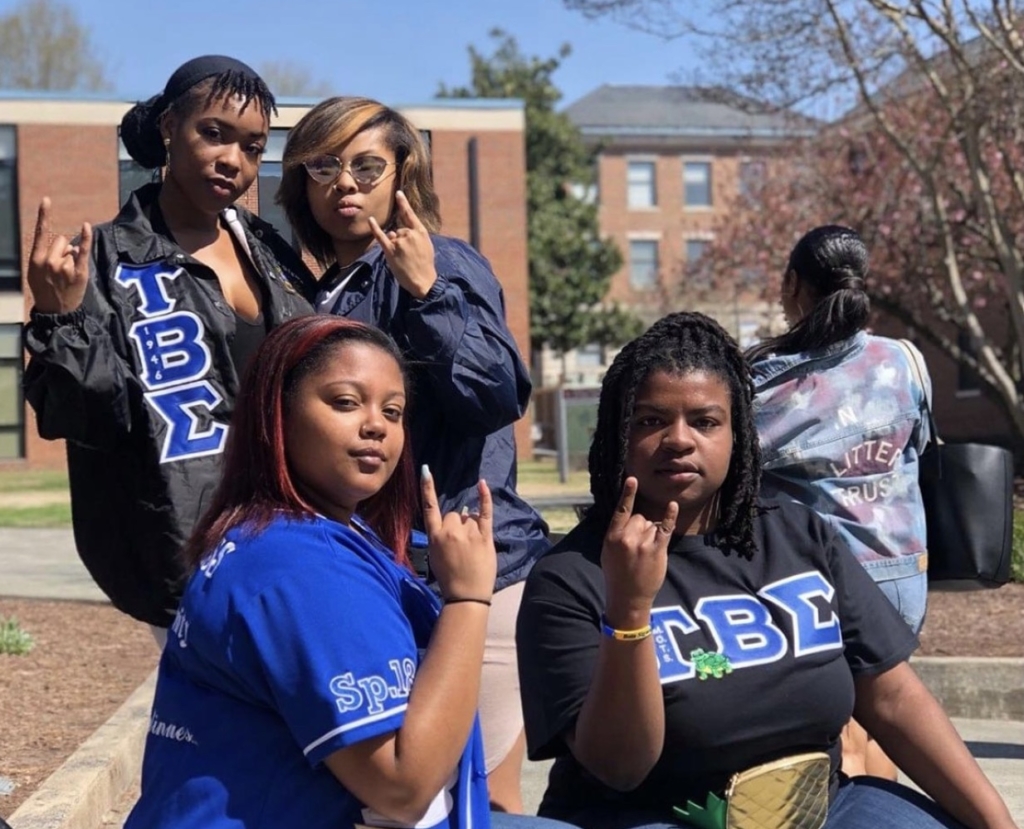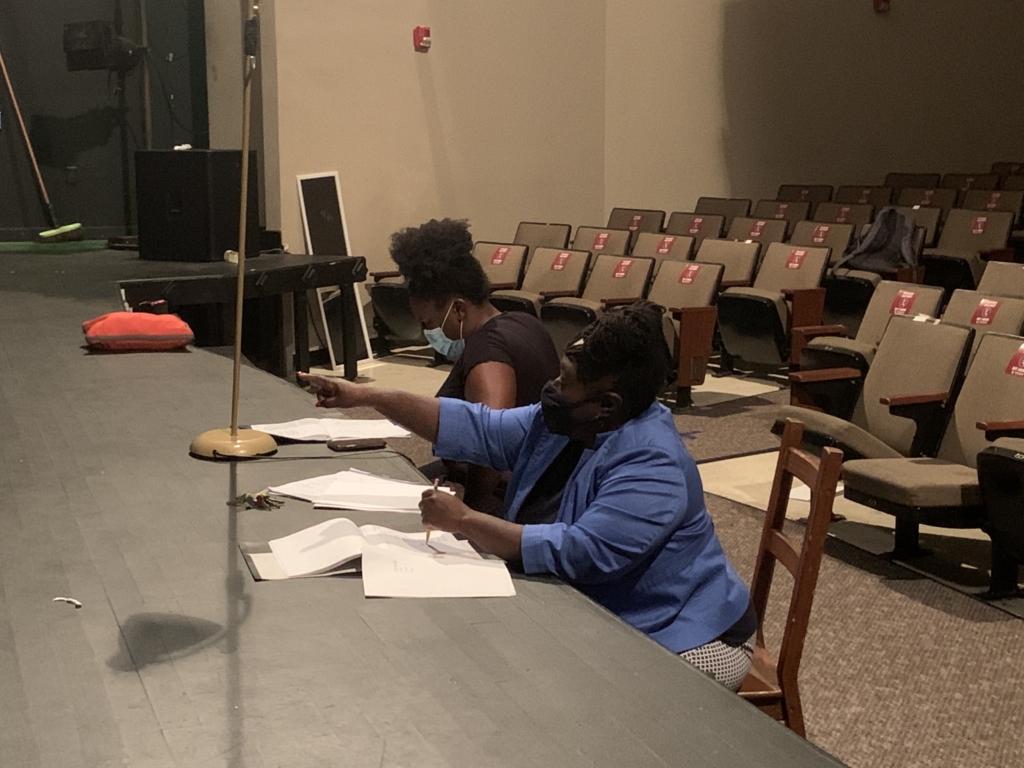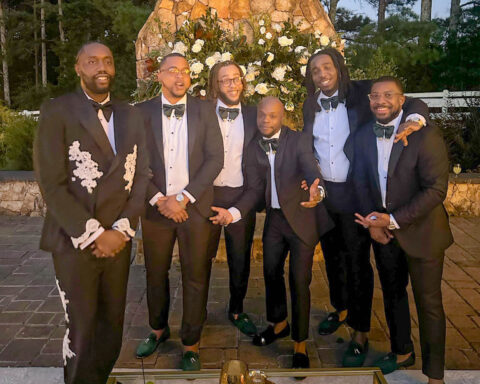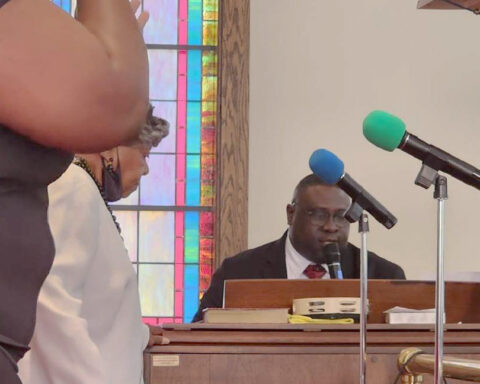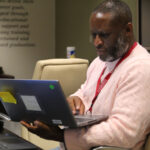With the safety precautions N.C. Central University has implemented in response to COVID-19, many faculty and staff members have experienced changes and challenges in their personal and professional lives in the midst of the pandemic.
Having taught online classes before, mass communication professor Shauntae Brown White said she was not concerned about instruction, but instead, trying to make sense of the pandemic and class dynamics.
According to White, she had to re-think her approach for students working collaboratively in teams. White added that it was challenging to adjust but not impossible to achieve.
“I think covering the course material and being sensitive to our states of mind is important,” White said. “I am still learning. I see [COVID] as an opportunity to learn new approaches.”
In order to stay healthy mentally and emotionally during the pandemic, White said she had to be intentional about her physical health. As a form of self-care, the biggest change White implemented in her personal life was managing her cardio exercising.
“Self-care is important,” White said. “That will be different things to different people, but everyone needs to carve out time to do it.”
Similar to White’s approach to self-care, N.C. Central’s Assistant Director of Library Services and First-Year Seminar (UNIV 1100) instructor, Jamillah Scott-Branch said she sets aside time in her everyday life to ensure that she is taking care of herself while fulfilling responsibilities.
“We are still working every day, taking care of our children, and managing our daily lives,” Scott-Branch said. “It’s important to take out time to just relax, unwind, and distress.”
From teaching freshmen in hybrid class sessions for UNIV 1100, managing various library operations, to looking after her children as they attend school virtually, Scott-Branch expressed her challenges with trying to balance her home and work life in this virtual era.
“With everything that’s going on, I’m very pragmatic about my time,” Scott-Branch said. “I’ve been very intentional to not overbook myself for things that may compete with time I need to give to my family.”
According to Scott-Branch, her five-year-old daughter was attending the Child Development Laboratory school operated in the Dent Human Sciences Building next to the library and her 13-year-old son was attending middle school in person before the pandemic ensued.
Scott-Branch added that the safety of both of her children was a top priority and sending them to school in person this academic year was not an option.
“I felt as though it was not safe for my kids to be in school [physically] so I opted to have them attend school virtually,” Scott-Branch said. “This has been a big adjustment for my life.”
Since the spring semester, Scott-Branch has been instrumental in overseeing the new safety library measures such as virtual resources, round the clock sanitization schedules, and increased security presence to protect students and employees during the pandemic.
Though some library employees continue to work virtually, Scott-Branch added that the library’s modifications continue to help make many other library employees more comfortable with working in-person again.
“My hope is for everyone in our campus community to remain safe and we follow the guidelines of the experts,” Scott-Branch said. “We should do what is recommended to keep our community safe.”
According to Kesha Reed, N.C. Central’s Executive Director for Academic Enrichment Services and First-Year Seminar (UNIV 1100) supervisor, UNIV 1100 along with many other N.C Central classes were restructured to virtual and hybrid models to adhere to the university’s social distancing mandates and ensure that students and instructors were comfortable.
On occasion, Reed said she’s felt extremely overwhelmed and frustrated, but setting aside time to check in with her students and staff helps relieve some of those emotions.
“Faculty and staff are people too,” Reed said. “We have families and get concerned and worried too even though we have to put on a strong face.”
While being vigilant about cleaning, checking on family members, and being kind to those around her, Reed said it’s a priority to be safe and considerate during this pandemic.
“My focus has been safety first, self-care, and making sure that I still show up for my students,” Reed said. “They are the reason for the work.”
Along with Reed, English instructor Regina Alston designed her assignments to provide students with opportunities to succeed in mastering the curriculum and learn “life lessons” even during the pandemic.
Normally, Alston conducted all of her classes in the Edmonds Classroom Building, but she opted to modify collaborative and in-person assignments to fit a virtual setting.
“I continue to be committed to helping students adjust to the consequences of COVID-19
without sacrificing academic integrity in my classes,” Alston wrote in an email interview. “I am supportive, and I believe students must be encouraged to have the default action be to master content, not just decide to do ‘enough to get by.’”
Like many other N.C. Central faculty and staff members, Alston is in a vulnerable age group. She added that this aspect of her life helped guide her decision to instruct virtually and consider the safety of herself and each student.
“I made my own decision about staying at home because I am in a vulnerable group,” Alston said. “I believe in making ‘informed decisions,’ so I research the pros and cons, read the science, and come to what I believe are logical conclusions.”
Though the pandemic has been overwhelming for many N.C. Central faculty and staff members, many others have readjusted and re-evaluated aspects of their work and home lives to maintain during this difficult time.
“In the whole scheme of life, 18-24 months of living in a pandemic will just be a blimp in time,” White concluded. “If we can just hunker down now and accept the new normal, we will all be more at peace.”

